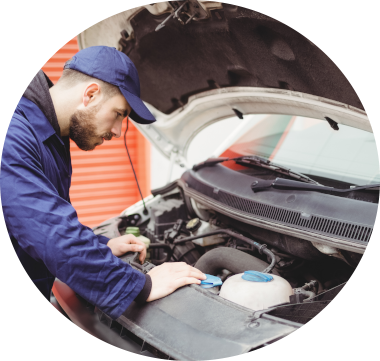Featured
Your lorry's brakes are just one of the most crucial parts in ensuring your safety and the safety of others when driving. Routine brake examinations are important to keeping optimum braking efficiency and preventing expensive repair work. Whether you're a skilled vehicle owner or a new motorist, recognizing brake inspection guidelines can help you stay positive regarding upkeep and guarantee your car is constantly roadworthy.
- Why Brake Inspections Matter. Brakes go through consistent deterioration. The even more you drive, the extra rubbing your brake pads endure, at some point resulting in lowered stopping efficiency. Without proper assessment, it's challenging to determine when your brakes could be in need of repair service. Regular brake checks aid determine issues early, avoiding prospective failings that can put you in jeopardy.
A well-kept brake system makes sure fast, responsive stopping power, especially in emergencies. It likewise helps prolong the life of your lorry, as neglecting brake maintenance can result in extra severe, pricey problems later.
- Signs You Need a Brake Assessment. While it's important to have your brakes checked periodically, particular indicators might show that they require attention. Keep an eye (and ear) out for these caution signals:
Squealing or Grinding Sounds: Uncommon noises, specifically a piercing screech or grinding sound, typically indicate that your brake pads are used down. Vibration or Pulsation: If you really feel resonances or a pulsing feeling when pushing the brake pedal, it can be a sign of distorted rotors or irregular brake pad wear. Reduced Brake Responsiveness: If your brakes feel much less receptive or you have to push the pedal harder to reduce, it may indicate air in the brake lines or reduced brake fluid. Pulling away: If your car pulls to one side when braking, it could suggest irregular brake pad wear or a brake fluid leak. Dashboard Caution Lights: Some cars have brake-related warning lights that suggest problems like low brake liquid or worn brake elements. If you discover any of these signs, it's important to have a professional mechanic do a brake evaluation as quickly as possible.

- What Happens Throughout a Brake Examination? During a brake examination, a mechanic will examine several essential elements of the braking system to ensure everything is in functioning order. Right here's what you can expect during the process:
Brake Pads and Shoes: The technician will certainly check the thickness of the brake pads or shoes. If they're also thin, they'll need to be changed. Brake Rotors: Blades are the discs that the brake pads press versus to reduce your vehicle down. They'll be examined for any signs of wear, scoring, or bending. Brake Liquid: Low or infected brake fluid can hinder braking efficiency. The service technician will inspect the liquid degree and quality and top it up or purge it if required. Brake Lines and Pipes: Brake lines carry liquid from the master cylinder to the brakes. The mechanic will look for any type of leaks, cracks, or damages to make certain appropriate fluid circulation. Brake Calipers and Wheel Cyndrical Tubes: Calipers and wheel cylinders press the brake pads against the blades or drums. The service technician will inspect for wear, leaks, and correct procedure. 4. Just how Typically Should You Have Your Brakes Evaluated? The frequency of brake inspections relies on factors like your driving routines, the kind of lorry you drive, and the setting in which you drive. As a basic policy, it's a great idea to have your brakes evaluated every 12,000 miles or yearly. If you experience any of the caution signs mentioned earlier, it's vital to get your brakes checked immediately.
For those that often drive in rush hour, mountainous surface, or harsh weather, even more regular inspections might be required.
- Importance of Timely Brake Repair Works. When you find an issue with your brakes, it's necessary to address it today. Delaying brake repair work can cause even more substantial damages to your stopping system, causing greater repair prices. In severe cases, disregarding brake issues can bring about complete brake failure, which is a serious security threat.
By remaining on top of brake maintenance and attending to concerns immediately, you make sure that your brakes remain to do as meant, keeping you and your guests safe when driving.
Verdict: Keep Your Brakes in Top Forming. Brake evaluations are a simple yet important part of lorry maintenance. By recognizing the value of normal examinations, knowing the signs of brake issues, and remaining proactive with repairs, you can guarantee your vehicle's braking system remains in optimum condition.
Latest Posts
Find the Premier Auto Repair Coupons in Montclare, Chicago
Uncover Montclare Auto Repair’s Highly Requested Car Care Solutions and Why Drivers Choose Them
Discover Your Financial Partner at WyHy – Top Benefits for Wyoming Residents
More
Latest Posts
Find the Premier Auto Repair Coupons in Montclare, Chicago
Uncover Montclare Auto Repair’s Highly Requested Car Care Solutions and Why Drivers Choose Them
Discover Your Financial Partner at WyHy – Top Benefits for Wyoming Residents
